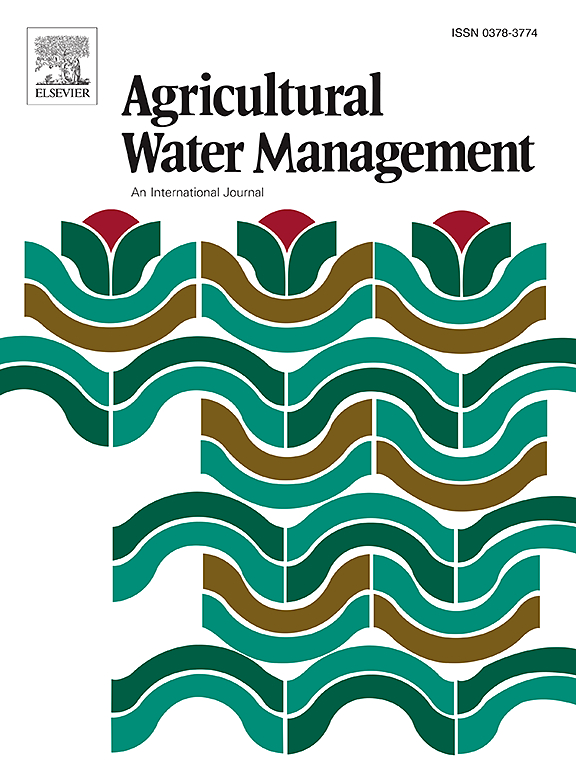通过施用生物炭实现作物产量和水分生产率最大化:全球田间试验综述
IF 5.9
1区 农林科学
Q1 AGRONOMY
引用次数: 0
摘要
迄今为止,全球已进行了一系列田间试验,研究生物炭对作物生产力的影响。然而,对添加生物炭后作物产量、用水量和相关基本驱动因素的改善潜力仍缺乏全面评估。本文以全球田间试验为基础,综合考虑了一系列潜在的影响因素,研究了生物炭在提高作物产量和用水量方面的功效。结果表明,生物炭显著提高了作物产量和作物水分生产率(WPc),分别提高了 11.2% 和 14.8%,但导致作物蒸散量(ETc)显著下降(1.8%)。在添加生物炭的第一年,施用量为 20 吨/公顷时,作物产量的提高幅度最大。研究发现,低 C/N、高热解温度、低 pH 值和木质原料是生物炭提高作物产量的有利特性。在 pH 值低、肥力低的土壤中,尤其是在炎热潮湿的气候条件下,生物炭的表现通常更好。与小麦和水稻相比,玉米的作物产量增幅更大。此外,在大多数情况下,WPc 的变化通常与作物产量的变化相一致。有利于提高作物产量的条件往往会通过对蒸散发量的影响而导致更高的 WPc 增幅。总之,本研究表明,作物产量的提高与土壤肥力和用水的改善密切相关。后者通过调节生物炭添加后的蒸发和蒸腾作用,成为影响作物生长和产量的重要因素。尽管生物炭在提高作物产量和 WPc 方面具有良好的表现,但如何在政策设计和实施过程中适当考虑各种影响因素,从而最大限度地发挥生物炭在全球农田中的作用,仍是一个新的挑战。本文章由计算机程序翻译,如有差异,请以英文原文为准。
Maximizing crop yield and water productivity through biochar application: A global synthesis of field experiments
Thus far, a series of field experiments have been conducted across the globe to investigate the effects of biochar on crop productivity. However, a comprehensive evaluation of the improvement potential of crop yield, water use, and relevant underlying drivers after adding biochar remains lacking. A synthesis based on global field experiments was conducted herein to investigate the efficacy of biochar in crop-yield and water-use improvement, taking a range of potential impacting factors into account. The results showed that biochar significantly increased crop yield and crop water productivity (WPc), by 11.2 % and 14.8 %, respectively, but caused a significant decline (1.8 %) in crop evapotranspiration (ETc). The highest crop-yield improvement was reached at an application rate of > 20 t ha−1 in the initial year after adding biochar. Low C/N, high pyrolysis temperature, low pH, and wood-based raw materials were found to be beneficial biochar properties for increasing crop production. Biochar generally performed better in soils of low pH and low fertility, especially in hot and humid climates. There was a higher increase in crop yield for corn compared with those for wheat and rice. In addition, changes in WPc were generally commensurate with those of crop yield in most scenarios. Conditions beneficial for crop-yield improvement tend to result in a higher increase in WPc through their effects on ETc. Overall, this study illustrates that crop yield improvement is closely related to improvements in both soil fertility and water use. The latter represents an important factor related to crop growth and productivity through the regulation of evaporation and transpiration after biochar amendment. Despite the promising performance of biochar in promoting crop yield and WPc, a further challenge involves ways to maximize the effects of biochar across global croplands by properly considering the impacting factors during the process of policy design and implementation.
求助全文
通过发布文献求助,成功后即可免费获取论文全文。
去求助
来源期刊

Agricultural Water Management
农林科学-农艺学
CiteScore
12.10
自引率
14.90%
发文量
648
审稿时长
4.9 months
期刊介绍:
Agricultural Water Management publishes papers of international significance relating to the science, economics, and policy of agricultural water management. In all cases, manuscripts must address implications and provide insight regarding agricultural water management.
 求助内容:
求助内容: 应助结果提醒方式:
应助结果提醒方式:


